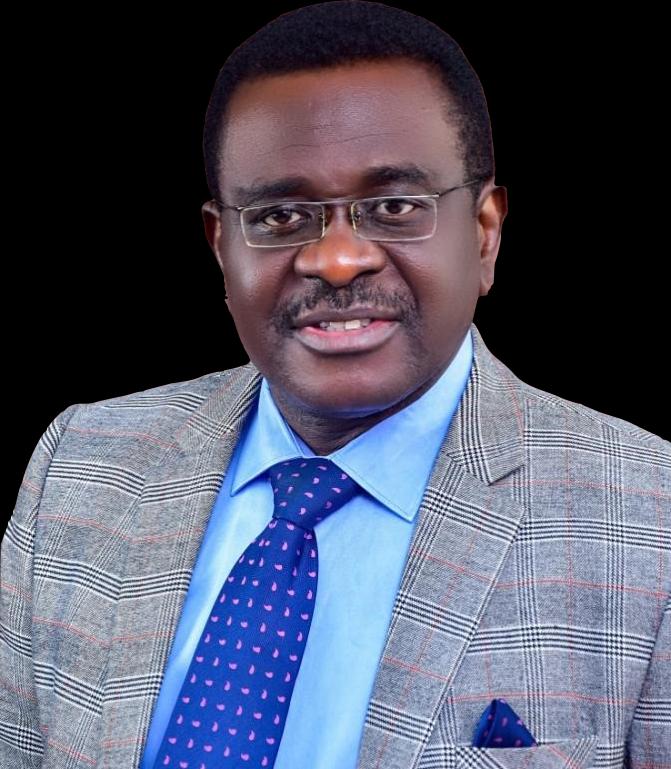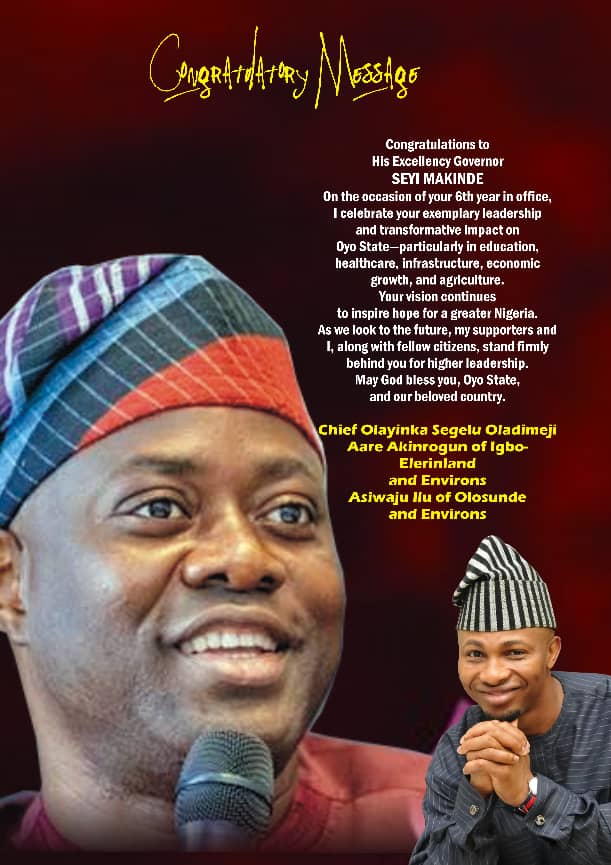The professional journey of Dr. Adeniyi Samuel Oginni, a health financing expert and outgoing Executive Secretary of the Osun State Agency for Control of AIDS is quite interesting. His unique perspective combines his medical background, his faith, and his passion for public health, offering a comprehensive view of the challenges and opportunities within Nigeria’s health sector. In this interview with WesternlifeNewsNG Publisher, BABS-OLURIBIGBE ADEOYE, Dr. Oginni shares insights from his extensive career in public health and health financing, detailing his motivations, achievements, and the key lessons he’s learned.
Can you please mention your name?
I’m Dr. Adeniyi Samuel Oginni, the Executive Secretary of the Osun State Agency for Control of AIDS. I got deployed to the agency just about six months ago. For five years, I was with the state health insurance agency. I was actually the pioneer executive secretary of the Osun Health Insurance Agency, which I led from 2018 to 2023 before moving to my current position.
What motivated you to pursue a career in public health, specifically in health financing?
Well, my motivation to pursue a career in public health was divine. When I was in university, after my gynecology posting, I wanted to be a gynecologist. But after graduation and starting work, I felt that being a gynecologist wasn’t enough. I considered becoming a family physician, touching all specialties. While I was still undecided and praying, I felt led by God to realize my potential as a social scientist. Despite my medical studies, my comfort zone was in social sciences, which is integral to public health. Along the way, God confirmed my path by granting me a scholarship to study public health, cementing my belief that I was meant to be in this field. Ever since, I’ve been grateful for not choosing a different specialty.
Are you into ministry?
What kind of ministry?
Like faith ministry
I’m a child of God. I’m a Christian and born again. I got born again in my final year at the University of Ife (now Obafemi Awolowo University) in 1988. Since then, I’ve been working in God’s vineyard as an evangelist and an Anglican. In 1994, God directed me to join the Anglican Church. There, I’m a lay reader, not a Reverend. Despite suggestions from bishops to train as a Reverend, I haven’t felt led to do so. I’m passionate about evangelism.
What’s your most significant achievement as a public health expert?
As a public health expert, my most significant achievement is the establishment of the Osun Health Insurance Agency. It became a trailblazer in the national health insurance ecosystem. We started with an appointment letter in February 2018. By 2023, we had established its processes, protocols, and governance system, built a large secretariat edifice, and acquired functional vehicles. We impacted many lives, with about 270,000 enrollement by the time I left. Additionally, I was the pioneer chairman of the Forum of Chief Executive Officers of State Health Insurance Agencies in Nigeria, where we reviewed operational guidelines to benefit Nigerians, particularly through the Basic Healthcare Provision Fund (BHCPF), with respect to its Provider Payment Mechanism and Basic Minimum Package of Health Services (BMPHS) for the benefit of Nigerians, especially the vulnerable populations. Millions of lives have been touched by this fund across the country.
What key lessons have you learned throughout your career that are crucial for anyone working in public health?
Working in public health requires passion, determination, and resilience. Advocacy is a significant part of our work, demanding patience, perseverance, expertise, and understanding of political economy. These are some of the critical lessons I’ve learned in public health.
How have you seen the landscape of health financing evolve over the years, especially in this country?
Nigeria’s flagship program for health financing is the Basic Healthcare Provision Fund, established under Section 11 of the National Health Act 2014. It allocates at least 1% of the federal government’s revenue to health financing. Before 2018, there was no such fund. The first disbursement in 2018 significantly increased financial resources for health, allowing indigent people access to healthcare. This fund is a major step forward in financing the health sector.
How do you plan to stay involved in public health or community service after retirement?
I don’t plan to retire from public health or medical practice, just only exiting civil service. I have numerous engagements at the national, continental, and global levels. I’m a World Health Organization fellow in public health and an Emerging Leader of the World Heart Federation. I also run a non-governmental organization called the Christian Initiative for Nation Building, focusing on health promotion, disease prevention, poverty reduction, good governance, and human rights advocacy.
What key challenges and opportunities do you foresee in the future of health financing in this country?
The future challenges will be similar to the current ones: inadequate funding, mismanagement of funds, corruption, poor personnel management, and insufficient development and remuneration of healthcare workers. The “Japa” syndrome, where healthcare workers leave the country for better opportunities, is a significant issue. If Nigeria doesn’t address these problems, the health sector will continue to suffer. Ensuring accountability, fighting corruption, and improving funding and political will are essential to improving our health sector.
For the past six months, you have been in charge of the Osun AIDS Control Agency. Can you tell me the strategy or policy implemented during your tenure that has had the most substantial impact on reducing HIV/AIDS in Osun State?
One significant achievement is the dissemination of the state HIV anti-discrimination law, passed in 2021 but largely unknown. We have sensitized the Osun community about this law, making it a crime to stigmatize individuals with HIV/AIDS. I’ve also mobilized development partners and stakeholders for regular meetings to address challenges collaboratively. We inaugurated the Gender and Human Rights State Response Team and the State Prevention Technical Working Group. Additionally, with approval from the governor, we procured and distributed preventive materials like condoms and safety boxes and medical consumables to stakeholders to amplify prevention activities.
What advice would you give to the next generation of health professionals to ensure a sustainable healthcare system in the country?
I would advise them to prioritize humanitarian values over monetary gains. Our job is about serving people, and focusing solely on money can hinder effective service delivery. Empathy and professionalism are crucial in our field.
Do you disagree with those who have left the country (“Japa”)?
I don’t disagree with those who have left. If I were a young man in this system, I would probably do the same due to the lack of appreciation and proper remuneration here. However, I urge the younger generation to balance their focus on money with empathy and professionalism in their medical practice. They should not treat healthcare as a business but as a service to humanity.
Finally, you’ll be 60 on Saturday, this week. How do you see life generally, and what lessons has it taught you?
Life is good. One significant lesson is that if you don’t have a focus or stand for something, you’ll fall for anything, making life feel meaningless. It’s essential to have a purpose and pursue it diligently. Aligning with God’s purpose for your life is crucial; otherwise, despite any material success, your efforts might be in vain.



